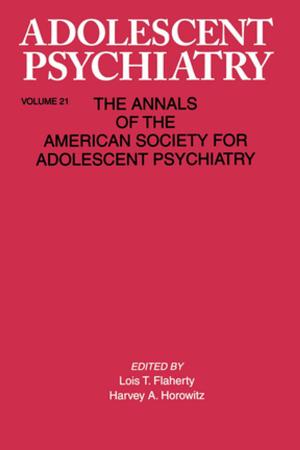Instinct, Environment and Behaviour (Psychology Revivals)
Nonfiction, Health & Well Being, Psychology, History| Author: | Stephen Lea | ISBN: | 9781317531685 |
| Publisher: | Taylor and Francis | Publication: | March 27, 2015 |
| Imprint: | Psychology Press | Language: | English |
| Author: | Stephen Lea |
| ISBN: | 9781317531685 |
| Publisher: | Taylor and Francis |
| Publication: | March 27, 2015 |
| Imprint: | Psychology Press |
| Language: | English |
What can the evolution of animal behaviour tell us about human behaviour? More specifically, how good an account of animal behaviour can we give in terms of evolution, and how do humans fit in with or deviate from the pattern established for other animals?
The biological approach to the study of animal behaviour has important implications for psychology, but it is distinctly different. Originally published in 1984, this book provides a basic introduction to biological theories about behaviour, from the classic ethological tradition of Lorenz and Tinbergen to the later sociobiological approach. The principles of experimentation and research involved are assessed critically, especially with regard to their implications for the study of human behaviour. Written specifically for those with little biological knowledge, this book will still be of interest to students of biology and introductory psychology alike.
What can the evolution of animal behaviour tell us about human behaviour? More specifically, how good an account of animal behaviour can we give in terms of evolution, and how do humans fit in with or deviate from the pattern established for other animals?
The biological approach to the study of animal behaviour has important implications for psychology, but it is distinctly different. Originally published in 1984, this book provides a basic introduction to biological theories about behaviour, from the classic ethological tradition of Lorenz and Tinbergen to the later sociobiological approach. The principles of experimentation and research involved are assessed critically, especially with regard to their implications for the study of human behaviour. Written specifically for those with little biological knowledge, this book will still be of interest to students of biology and introductory psychology alike.















